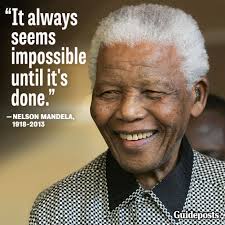Elections have an uncanny and inconvenient capacity to expose

community fault lines. This once again became evident prior to last week’s municipal vote. Especially in larger centres like Vancouver, Surrey, Abbotsford and Kelowna, the vitriol at times flowed as freely as beer at a bartenders convention. Ambitious politicians flayed at each other with verbal clubs in media ads, a plethora of letters and brochures in our mail boxes, public meetings etc. There was the usual frenzied competition to persuade us by putting up enough signs to construct a few homes. Even in Princeton, Keremeos and usually quiet, peaceful Hedley, cracks were revealed in the political and social fabric.
We have come to accept that politicians will heatedly espouse opposing views as to what is most beneficial for our community. When the skirmishing between leaders becomes personal and continues after the election, we have reason to be concerned. Leaders at war with each other are not able to focus on creating a safer, healthier, more vibrant community.
We cannot do anything about fault lines that exist below the earth’s surface. By examining our motivation and changing our thinking, we can do something about fault lines in the fabric of our communities. For the sake of the people, it is essential that leaders develop the maturity, wisdom and will to work productively with those who hold differing views. We grow stronger as a community when we do not permit diversity of outlook and ideas to divide us.
Wise leaders, whether in politics, business, a profession, etc., consider the ramifications of their attitudes, words and actions. They choose to work constructively with others, sometimes even with those who have radically different ideas.
This will almost certainly mean overlooking slights, harsh words, possibly even physical injury. It may also require forgiving. Josh Billings has said, “There is no revenge so complete as forgiveness.”
Politicians could benefit from studying carefully the inspiring example of Nelson Mandela. For much of the 26 years of his imprisonment, he was held in the infamous Robben Island Prison. He was compelled to do hard labour in a lime quarry and was permitted only rare visits from his wife Winnie and their 2 daughters. He longed to be at home with his family and to continue his struggle against the government’s policy of strict dehumanizing racial segregation. It grieved him when he received reports of his people being shot while demonstrating against Apartheid.
When the government realized it could no longer cling to power, Nelson Mandela was released. Elected to the position of President, it was expected he would wreak vengeance on the minority white population. South Africa was in danger of degenerating into a bloody civil war. Mandela’s thinking, decisions and actions would determine its future.
While in prison he had made a conscious decision to not become

(Guideposts)
bitter. He chose to rise above the pain and loneliness of his lost years. The understanding and philosophy he developed during the difficult years of confinement enabled him to forego punishing those who had kept his people in virtual slavery. He understood that for the good of all citizens, black and white, he must rise above anger and bitterness. He needed to enlist the skills, experience, and cooperation of the former masters. To this end, he appointed F.W. de Klerk, the former president, as his first Deputy President.
The politicians elected in the Similkameen communities last Saturday don’t need to deal with issues that could destroy their community and bring death to many. But there are important matters to grapple with. Many of these were raised in the race to win. Will the winners shut out the losers now or will they respect them and listen to them? Will the losers adopt a fifth column role, always seeking to undermine and sabotage those in power?
Whether there is animosity or a spirit of cooperation will to a great extent be determined by the level of maturity and good will demonstrated by our leaders, both winners and losers. Societal and political fault lines do not have to divide our communities.

One thought on “Elections Expose Community Fault Lines”